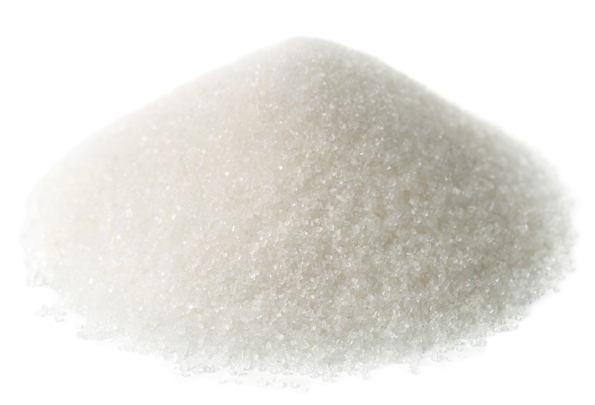
Health Benefits of L-Threonine for Horses
While technically a nonessential amino acid, glutamine can be depleted during times of stress, such as during digestive distress or intensive training. When the depletion is severe, supplementation with L-glutamine is required, such that this amino acid is often referred to as “conditionally essential”.
L-Glutamine is the most abundant amino acid in humans as well as horses and can be useful for:
- fueling and repairing muscle tissue
- replenishing the natural supply of L-glutamine depleted during stress
- maintaining tight junctions in the gut lining, preventing pathogen leakage and systemic infection
L-GLUTAMINE ENERGIZES AND RESTORES MUSCLES
L-glutamine is an essential link in the biochemical functions of protein synthesis and cellular energy. The tissue producing the most L-glutamine is muscle.
Under normal conditions, horses produce enough L-glutamine de-novo to support the body’s needs. However, conditions of high metabolic stress in a horse create greater needs for L-glutamine.
The natural supply of L-glutamine may be depleted by:
- GI ulcers or colitis
- malnutrition
- infection
- intense exercise and training
Natural production of L-glutamine in the body may not be able to keep up with the horse’s demand under these stressors. Adding L-Glutamine to a horse’s diet fuels muscles and provides the additional reserves needed to recover and repair muscle tissue after physical activity.
L-GLUTAMINE PROTECTS AGAINST GUT DAMAGE
The immune system needs to receive an adequate supply of L-glutamine to protect against illness and potential tissue damage. L-Glutamine deficits can result in:
- diarrhea
- atrophy of intestinal villi
- mucosal ulceration in the stomach and colon
- increased intestinal permeability
- necrosis
- digestive complications
- poor nutrient absorption
Dietary glutamine helps to avoid these problems for horses that are in training, being used for hard work or are otherwise under stress. L-Glutamine supplies nitrogen to the immune cells of the intestinal mucosa, including T-cells, B-cells, macrophages and neutrophils. L-glutamine, after glucose, is the main fuel for intestinal epithelial cells (which make up the first layer of the gut lining). These “enterocytes” maintain intestinal integrity, ensuring that the gut lining can absorb nutrients while simultaneously keeping pathogens out.
L-GLUTAMINE IS IMPORTANT FOR NUTRIENT ABSORPTION
L-GLUTAMINE SUPPORTS HORSES’ DIGESTIVE HEALTH
Assess your horse’s health to determine if added digestive support may be beneficial for health and performance.
References
- Smith, Robert J., and Douglas W. Wilmore. “Glutamine nutrition and requirements.” Journal of Parenteral and Enteral Nutrition 14.4 suppl (1990): 94S-99S.Newsholme, Philip. “Why is L-glutamine metabolism important to cells of the immune system in health, postinjury, surgery or infection?.” The Journal of nutrition 131.9 (2001): 2515S-2522S.
- Roth E, Spittler A, Oehler R. Glutamine: effects on the immune system, protein balance and intestinal functions. Wien Klin Wochenshr. 1996;108(21):667-8.
- Duckworth DH, Madison JB, et al. Arteriovenous differences for glutamine in the equine gastrointestinal tract. Am J Vet Res 53(10): 1864-7.
- Vazquez P, Gomez de Segura IA, Cos A, Candela CG, De Miguel E. Response of the intestinal mucosa to different enteral diets in situations of surgical stress and malnutrition. Nutr Hosp. 1996 Nov-Dec;11(6):321-7.
- Rotting, A. K., Freeman, D. E., Constable, P. D., Eurell, J. C. and Wallig, M. A. (2004), Effects of phenylbutazone, indomethacin, prostaglandin e2, butyrate, and glutamine on restitution of oxidant-injured right dorsal colon of horses in vitro. Am. J. Vet Res. 65: 1589–95. doi:10.2460/ajvr.2004.65.1589.
- HARRIS, R. C., HARRIS, P. A., ROUTLEDGE, N. B. H., NAYLOR, J. R. J. and WILSON, A. M. (2006), Plasma glutamine concentrations in the horse following feeding and oral glutamine supplementation. Equine Vet J. 38: 637–642. doi:10.1111/j.2042-3306.2006.tb05618.x
Take the next steps toward supporting your practice.
Let’s continue the conversation on equine GI health management. Let us know how we can help.
Where to Buy SUCCEED® Products
All SUCCEED products are available for purchase through veterinary supply distributors for you to resell to your clients.
Your clients may also purchase SUCCEED Digestive Conditioning Program from local and online retailers throughout the United States and Canada.

